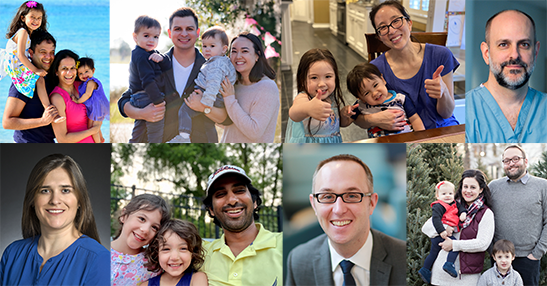
Will foster better work/life balance
Life is about choices. For residents and fellows that has often meant postponing getting married, starting a family, and even addressing their own health issues because they lacked adequate vacation or sick time and didn’t want to extend their training.
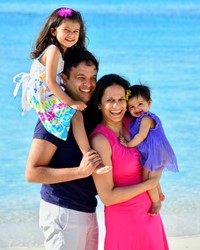
But now those choices will be easier to make thanks to the progressive leave policy recently adopted by the American Board of Medical Specialties (ABMS). The policy will reduce the stress for residents and fellows when dealing with life events and allow them to have a more stable work/life balance, noted Maya Iyer, MD, MEd, Director of Pediatric Emergency Medicine Faculty Development and Assistant Professor of Pediatrics at Nationwide Children’s Hospital.
Although Dr. Iyer didn’t postpone getting married during residency training, she was married on a Saturday and returned to work on the following Monday. She had 21 days of vacation but had to use them to conduct interviews for obtaining a fellowship. When her father passed away during her fellowship training, Dr. Iyer was able to rearrange her schedule to be able to participate in several religious functions. “If I did not have such an understanding fellowship director, I would have exhausted all my vacation days,” she said. Dr. Iyer, who was in the Visiting Scholars’ Class of 2019-20, did wait to complete training before having children.
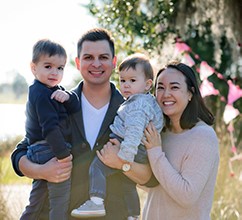
Victoria Ovalle, MD, MEd, a Pediatric Emergency Medicine physician at Osceola Regional Medical Center, had two children during her fellowship training. The Visiting Scholar from the Class of 2018-19 took a 12-week leave with each child. She made up the 24 weeks of training by graduating in December instead of June. Dr. Ovalle struggled to find an academic institution hiring mid-year. “While my leave would have extended my training no matter what, having the ABMS policy in place would have likely made it much easier for me to secure a job,” she said. “ABMS spearheading this unified, standardized policy will ensure that we continue to train high quality residents and fellows while offering them the support they deserve as they move through some of life’s most important events.”
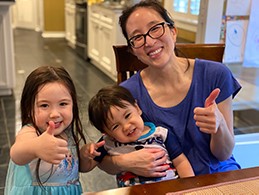
Stephanie Yi, MD, MS, a transplant surgeon at Houston Methodist Hospital JC Walter Jr. Transplant Center, may have felt more at ease getting married sooner and having children had this policy been in place during her training. Taking a research year allowed Dr. Yi the time to plan life events, said the Visiting Scholar from the Class of 2014-15.
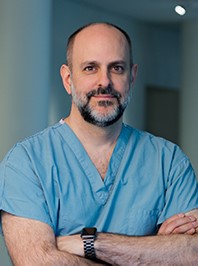
Brian George, MD, MA, an Assistant Professor of Surgery at the University of Michigan, put off addressing his own health issues during training. “While I deeply value the professional commitment we must all make to our patients, a more flexible leave policy would have helped reduce the stress of trying to care for myself and my family during training,” said Dr. George, who was in the Visiting Scholars’ Class of 2018-19.
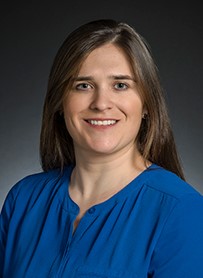
Similarly, Caitlin Hicks, MD, MS, an Assistant Professor of Surgery at the Johns Hopkins University School of Medicine, said that this leave policy “would have been a very nice relief” when she was in training. Dr. Hicks is a Visiting Scholar from the Class of 2018-19.
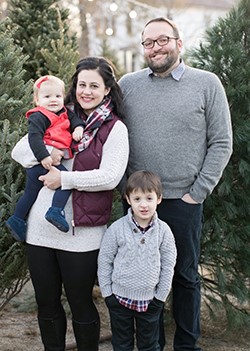
Life happens while residents are in training, joyfully, when it involves the arrival of a child, noted Shannon Martin, MD, MS, SFHM, an Associate Professor of Medicine and a Residency Associate Program Director at the University of Chicago. “When I was in training, the joy was too often immediately followed by heavy sighs, scheduling scrambles, and guilt when trainees considered what this would mean for their training, their program, and their colleagues, especially for women,” she said. “I hope this policy will allow our trainees to savor this precious time to be with family, recover, and renew themselves for the next phase of life and their career,” added Dr. Martin, who was in the Visiting Scholars’ Class of 2017-18.
The policy will help Dr. Martin inform and advise trainees during their residency as well as those considering subspecialty training. “This issue is at the forefront of many young physicians’ minds,” she said.
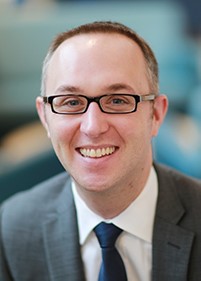
Serving on the American Board of Pediatrics’ Education and Training Committee and having served as a residency program leader, Dan Schumacher, MD, PhD, MEd, an Associate Professor in the Department of Pediatrics at the Cincinnati Children’s Health Medical Center, is well aware of how important addressing these issues are. “I strongly believe that we need to keep working to get to a place where we can make advancement and graduation decisions based on a person’s readiness rather than on an artificial time. This new progressive leave policy takes important strides in that direction, implementing more flexibility into a traditionally rigid system of graduate medical education, said Dr. Schumacher, who was in the Visiting Scholars’ Class of 2014-15.
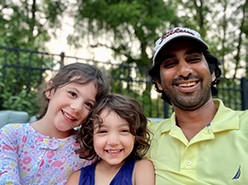
Sandeep Mannava, MD, PhD, Assistant Professor of Orthopaedic Surgery at the University of Rochester, will likewise use the policy to advocate for residents and fellows. During training, he postponed getting married, starting a family, caring for a sick relative, and addressing his own health issues. “This policy is essential to bringing our training up to the modern standards of the work environment,” said the Visiting Scholar from the Class of 2016–17. “I am proud of ABMS for taking a leadership role in this endeavor,” he added.
© 2020, American Board of Medical Specialties
